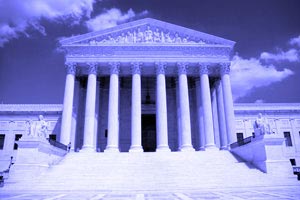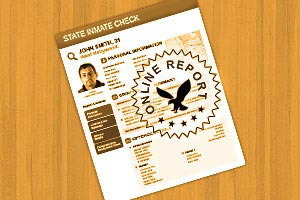Pennsylvania Public Records
The Pennsylvania State Records website aims to provide every person with the right to seek out and obtain Pennsylvania public records. This right is in accordance with the Pennsylvania Right to Know Law, which specifies that all government information and records are presumed public.
The goal of this website is to ensure all members of the general public have the right to access Pennsylvania state public records. This can be done without requiring a reason for accessing such information or providing personal information unless the requested information is confidential by law or court decision.
The information documented on this website includes criminal records, court records, and vital records, including over 100 million transparent public records.
Are Pennsylvania Records Public?
Most records created and maintained by government entities and agencies are classified as public records. The Pennsylvania Right to Know Law (RTKL) defines public records as information (regardless of physical form or attributes) that records any transaction or activity of government agencies. These records include any information created, received, retained, and used by the agency while conducting any official business or activity.
What is Considered Public Information in Pennsylvania?
Per Pennsylvania public records laws, public records in Pennsylvania include the following:
- Court records
- Criminal records and criminal history records
- Arrest records
- Bankruptcy records
- Sex offender information
- Marriage records
- Divorce records
- Inmate records
- Property records
The Pennsylvania Right to Know Law permits public access to almost all public records ranging from government correspondence to court records and marriage records. This means that by contacting the appropriate record custodian, a Pennsylvania resident may access, view, and copy public records no matter how they are stored. To search public records, interested members of the public are typically required to contact the appropriate custodian and provide them with the information required to facilitate record search. However, the personal information of record custodians and government employees are not regarded as public records. For example, the personal phone records or emails of a county clerk is not public record information.
Pennsylvania public records come in many forms, including written and typed documents, photocopies, pictures, maps, audio and video files. They may also be stored as physical paper files or digitized files on a computer disc or hard drive. They can be transmitted physically as written letters or electronically as computer files, emails, and faxes. Persons interested in accessing public records may do so by querying the record custodian or by conducting a public data search using the government-owned online resources available. Third-party sites also offer paid or free public data search options to interested members of the public. Per Pennsylvania public records laws, a public records act request may also be made to the relevant Public Records Officers to access records of interest.
How Do I Find Public Records in Pennsylvania?
Under the statutes on the RTKL, record keepers and custodians must provide access to a public record on receiving a valid and complete record request. A requester may acquire copies of a required public record by making a request using a few simple steps given by the Pennsylvania Office of Open Records (OOR).
- Determine the type of information you require and the agency in charge
The first step is to simply determine what record you require and the custodial agency. For example, a court record would likely be at the court where the case was heard and in possession of the clerk of the court. On the other hand, vital records such as marriage and divorce records may be available through the county health department or the county recorders office. Similarly, records on information about Pennsylvania's state park system would be in possession of the state Department of Conservation and Natural Resources. However, criminal records are available through the State Police Department or County Sheriff's Office. Figuring out the right agency and custodian of the record will prevent misdirected requests and save you a lot of time and effort. Since misdirected requests are so common the OOR has a table of misdirected requests to help requesters identify the right agencies when searching for a record.
- Contact the custodian
Every government entity is required by the right to know laws to appoint a record custodian or Agency Open Records Officer (AORO) to attend to requests. This official may have a different title in various government agencies but this is who the request should be addressed to. Usually, the best place to find the contact details of these officials is on the government agency’s website. In some cases, the contact details can not be found on the website, or the agency does not operate a website. For cases like these, the Pennsylvania office of open records maintains an open records officers database that can be used to search for the appropriate one. If contact details for a records officer can not be located, it is advisable to simply address a written request to the “open records officer”. The request can then be mailed to the agency’s main address.
- Composing and Submitting the Request
The request itself can be in various forms, where possible it is better to use the request form provided by the agency being requested from. It is also possible to make requests using the Office of Open Records standard RTK request form which is available in PDF and Microsoft Word. Most record requests can be filed or submitted in several ways:
- Submitting the completed form or written request in person at the agency’s office
- Mailing the request to the agency office using US mail or courier service.
- The completed form can be faxed to the agency fax number
- Requests can also be sent electronically to the agency’s email address.
The request must always be addressed to the open records office no matter which method you use to file it. When making a request there is some important information that must always be included:
- A clear and concise description of the record being requested so that it can be quickly located and determined if it is a public record.
- Full name and address of the requester
- If any copies are required
- Contact details where the requester can be reached
- A date range for the record
- A preferred method of delivery
Filing the request will always be free but fees may likely be charged for viewing or copying the record. Also, it is advisable to keep a copy of your request as a copy will be needed if the request is denied and the requester decides to appeal the decision.
Using Third-Party Sites to Find Public Records in Pennsylvania
City Records
Public city records may also be accessible from third-party websites. These non-government platforms come with intuitive tools that allow for expansive searches. Record seekers may either opt to use these tools to search for a specific record or multiple records. However, users will need to provide enough information to assist with the search such as:
- The name of the subject involved in the record (subject must be older than 18 or not juvenile)
- The address of the requestor
- A case number or file number (if known)
- The location of the document or person involved
- The last known or current address of the registrant
Third-party sites are not sponsored by government agencies. Because of this, record availability and results may vary.
Public Records
Public records can also be accessed from third-party websites. These third-party public records aggregate websites offer search services that are non-geographically limited, making the search result expansive and typically straightforward. However, users will need to provide enough information to assist with the search, such as:
- The name of the subject involved in the record as long as the subject is not a juvenile
- The last known or location of the record subject
Third-party public records search websites are not government-sponsored services. Therefore, the availability and accuracy of results can vary.
How Do I Lookup Public Records for Free in Pennsylvania?
The possibility of locating free public records in Pennsylvania will depend on the record and the agency in the custody of it. For example, many Pennsylvania courthouses maintain computer terminals on the premises where requesters may search court records for free. To conduct a free public records search, requestors may enter the necessary information into the self-service computers. Using this method or requesting to inspect records in person physically is a good way to view records for free. Most court records can also be viewed online using the search tools on the Pennsylvania judiciary website. Pennsylvania also operates a sex offender registry and a state inmate locator, which are good places to view records for free. Viewing records online and physically is usually free, while requesting photocopies may incur copying and postage fees. Requesters can also avoid these fees by asking for electronic versions to be delivered via email instead. Public service terminals may also be available in a county clerk's office or county recorder’s office.
The state of Pennsylvania began recording public records in the year 1775 and typically covers all 67 counties in the state. Since digitization of public records began 30 years ago, third-party and governmental websites can increasingly offer these records online as the practice becomes the standard. This allows Pennsylvania citizens to abide by the commitment of the United States of America to remain a fair and just society for all.




